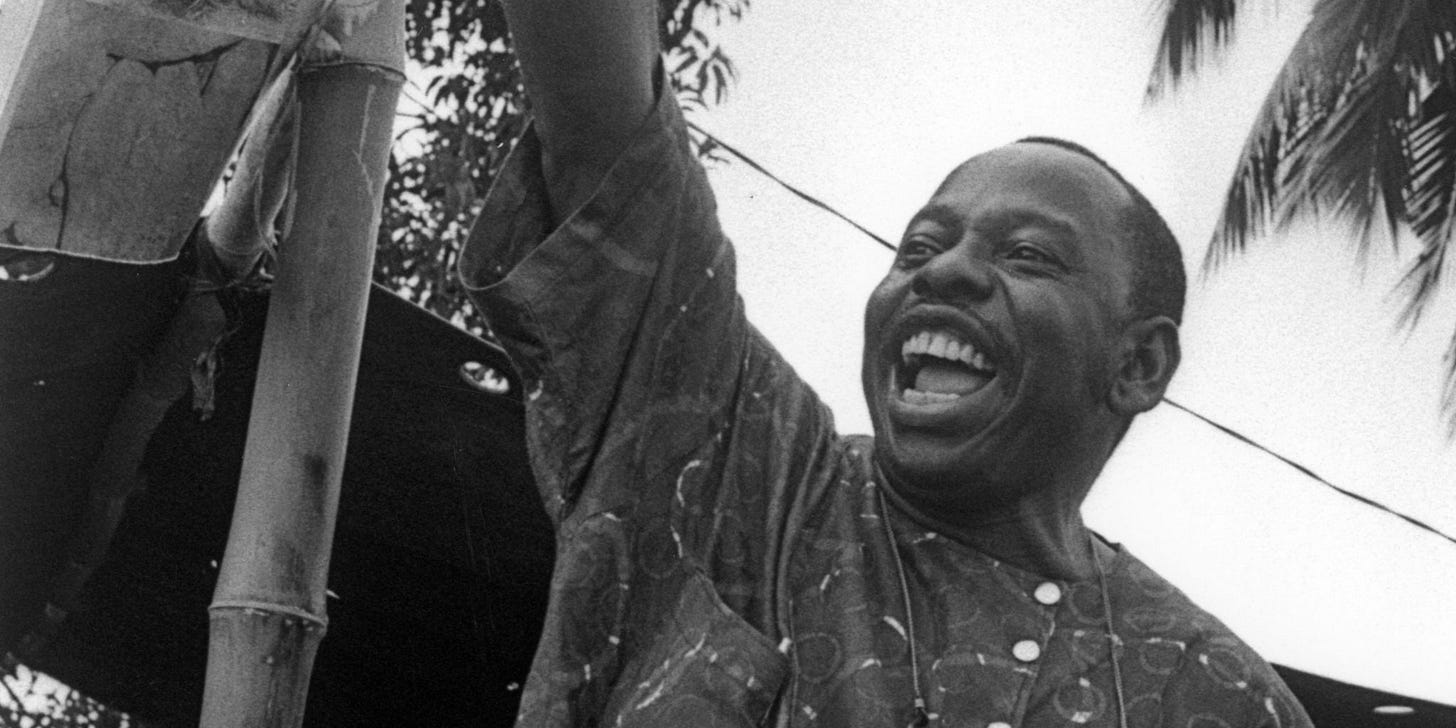
Good morning from… can you guess where? (Answer at the bottom!)
Ken Saro-Wiwa Finally Gets a Presidential Pardon 30 Years After the Gallows
Good morning to everyone except military tribunals. Nigeria’s President Bola Tinubu just issued a posthumous pardon (plus shiny national honors) to writer-turned-eco-activist Ken Saro-Wiwa and the rest of the “Ogoni Nine,” executed in 1995 for murders most people believe they didn’t commit.
Quick rewind
The crime, allegedly: Leading peaceful protests that made Shell uncomfortable about oil-soaked Ogoniland.
The trial: Secret, military, and about as legit as a WhatsApp investment scheme.
The fallout: Global outrage, Nigeria booted from the Commonwealth, and the Ogoni Nine immortalized as environmental-justice icons.
Why the pardon matters, or not
The Good: Official recognition that these guys were heroes, not hooligans.
The But: A pardon still implies guilt, and families want an outright exoneration – or better, a retrial that screams innocent, not forgiven.
The Activists’ Wishlist: Real accountability for ongoing Delta pollution and less finger-pointing at oil thieves whenever a pipeline springs a leak.
Bottom line: Tinubu’s gesture is a symbolic step forward, but the road to true justice (and a truly clean Niger Delta) still feels like a distant dream for too many.
Wangechi Mutu's Roman Takeover: Swinging From Ceilings to Shatter Myths
Kenyan-American artist Wangechi Mutu has museum curators holding their breath, this time at Rome's grand Galleria Borghese. Ignoring ornate walls and floors, Mutu boldly suspends her sculptures from the villa's ceilings, making visitors crane their necks in awe.
Francesca Cappelletti, the gallery's director, chose Mutu precisely for her fearless approach. Famous for her startling collages and those bronze figures adorning New York’s Met facade, Mutu consistently challenges cultural myths. Two of these statues now command the Borghese's entrance, defying Rome’s narrative of classical purity.
In her show, Black Soil Poems, Mutu subtly mixes the personal and political. Coffee-ground letters quoting Bob Marley’s "War" overlay a Roman mosaic, highlighting intertwined histories of Africa and Europe.
Mutu’s genius is in finding institutional weak points and joyfully exposing hidden truths. With wit and grace, she reveals history’s uncomfortable secrets, reminding us they always surface eventually, and you can learn more about the installation here.
Ngũgĩ wa Thiong’o’s College Years
If there’s one thing you do this week, read this extract from “Birth of a Dream Weaver: A Writer’s Awakening” by Ngũgĩ wa Thiong’o, who passed away a couple of weeks ago. You can find it here.
“Years later the train and its sounds would still ring in the prose of my fictional world, in the novel A Grain of Wheat, in particular. The fact is, the railway, built in the 1890s, the high noon of the imperial Scramble for Africa, had an impact on the economy, politics, culture, and life of the region so profound as to make it inseparable from the history of modern East Africa. A product of British imperial dreams, the train had landed me in the city of my dreams.
“The bus from Wadegeya was a slow-motion climb to a biblical city on a hill, except that this city was here and now, and it had a real name, Makerere University College.”
Food for Thought
“Poverty is like a lion, if you do not fight it, you get eaten.”
— Tanzania Proverb
And the Answer is…
The photo is from Cape Verde. You can also send in your own photos, alongside the location, and we’ll do our best to feature them.






